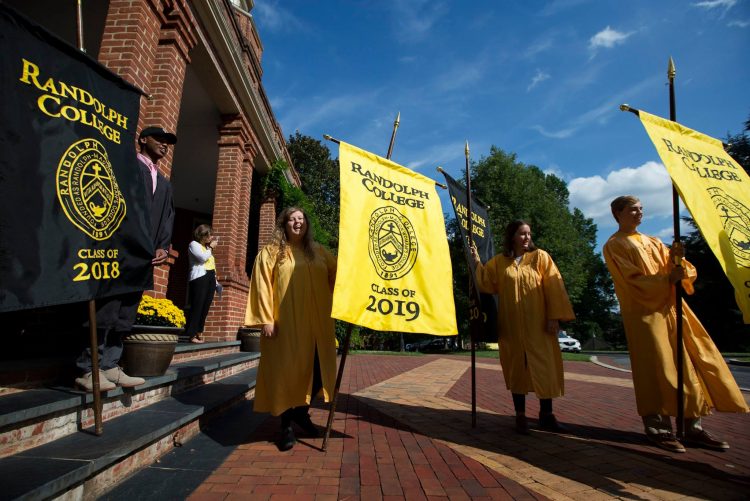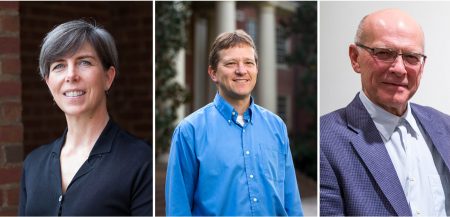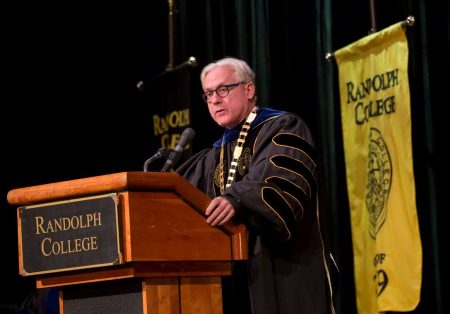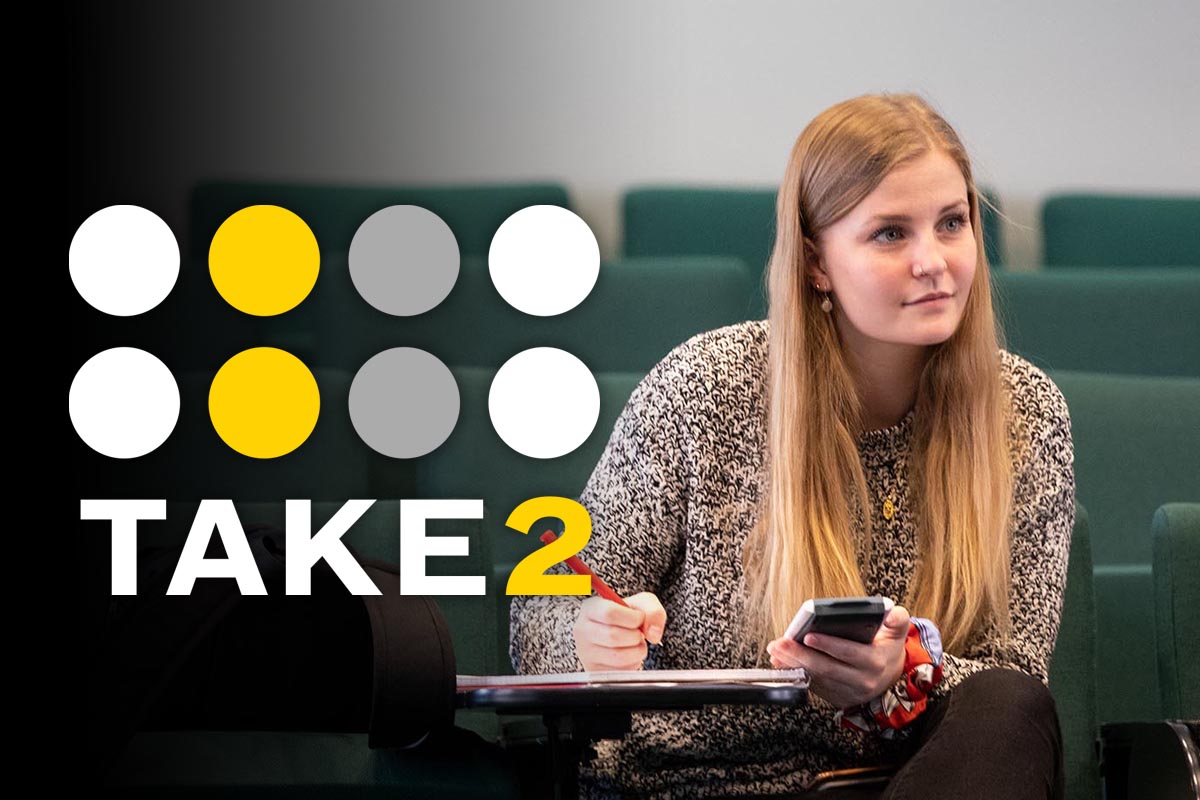Randolph president discusses freedom and the liberal arts in Convocation remarks
 President Bradley W. Bateman delivered a message about the strong need for liberal arts graduates in a free society to the College community Wednesday as Randolph College officially marked the beginning of the 2017-18 academic year with Convocation.
President Bradley W. Bateman delivered a message about the strong need for liberal arts graduates in a free society to the College community Wednesday as Randolph College officially marked the beginning of the 2017-18 academic year with Convocation.
SEE MORE PHOTOS ON THE RANDOLPH COLLEGE FACEBOOK PAGE
The ceremony began with the traditional procession of faculty and seniors from Main Hall into Smith Hall Theatre. Seniors wore traditional funny hats and graduation robes decorated with buttons as they exchanged cheers and songs with the sophomores.
During the event, Carl Girelli, vice president for academic affairs and dean of the College, presented several awards to students and faculty.
Mekenzie Schmitt ’19 earned the Phi Beta Kappa Book Award, which is given annually to the junior who has attained the highest grade point average in her or his class.

Laura-Gray Street, Peter Sheldon, and Jim Muehlemann
Physics professor Peter Sheldon was awarded the Kathryn Graves Davidson Scholarship Award, which recognizes the importance of faculty research, scholarship, and achievement.
English professor Laura-Gray Street received the Kathryn Graves Davidson Service Award, which recognizes a member of the full-time faculty who has been outstanding in bringing distinction to the College.
Art professor Jim Muehlemann was presented the Gillie A. Larew Distinguished Teaching Award, which is given to a member of the faculty who has demonstrated excellence as a classroom teacher.
Tetiana Poliakova ’18, president of Student Government, welcomed her fellow students and offered words of advice for each class, as well as the College’s faculty and staff..
“Randolph College is home, and this community is our family,” Poliakova said. “We all hold something dear in our hearts, and we will forever treasure this institution. Randolph family is a family like no other. We provide each other with support, empathy, respect, and understanding. Our honesty and generosity amazes everyone who steps on this campus.”
Bateman echoed Poliakova’s sentiment about Randolph’s close-knit community and reminded seniors about his first address to them when they first arrived on campus three years ago. In those earlier remarks, Bateman shared statements from politicians and others criticizing liberal arts education. He also provided statistics and employer surveys that countered each of those arguments. One of those studies found that the top three traits employers look for in recent college graduates are the ability to communicate clearly and effectively, the ability to solve problems, and the ability to work well in groups of people who are unalike.
Those findings remain true today, Bateman said Wednesday, adding that each of these skills are prioritized in a Randolph education. He said graduates are prepared for jobs that might not even exist yet.

President Bradley W. Bateman
“Despite what politicians and media pundits have been saying, we are the best place to get a college education,” Bateman told the Convocation crowd. “Sure, you might get a job upon your graduation if you attend another kind of institution, but how long will the job exist? What kind of career path will you have? The odds are that your career path across an entire lifetime won’t be a good one if you do not have the broadly defined skills that you gain from a liberal arts education.”
Bateman also argued that liberal arts graduates’ versatility and problem-solving skills are essential to a free society.
“To make choices wisely, you need to have a broad understanding of the world,” he said. “You need to understand science and how scientists reason. You need to understand literature and art. You need to understand history. And you need to understand how social scientists view the world. There is a limit, of course, to what you can learn in four years, but we believe that you can learn enough about how to learn while you are here at Randolph that you will be able to continue to think creatively and critically.
“We believe that you will have acquired the tools of freedom after your four years,” Bateman added. “At the very least, you will have the tool belt you need, with the first few tools already there for your use. In the end, you may choose to believe the things you were raised to believe or that you believed when you first arrived on campus; but we believe that you should choose those beliefs for yourself.”
Bateman admitted that he considered changing his Convocation remarks following the recent white supremacist rally and the ensuing violence in nearby Charlottesville, but found that freedom was still an appropriate theme.
“Although liberal education started 2,500 years ago as an education for people who already had freedom, during the last 350 years it has become an institution devoted to helping people become free,” Bateman said. “In that project we are called to oppose race hatred, bigotry, and all ideas of innate supremacy.”
In closing, Bateman urged the Randolph community to cherish its freedom and to use it to bring positive change to the world.
“If you claim that you are a liberally educated person, then you claim equality for all humans,” he said. “In this belief, we must stand together. If we do not believe in loving kindness toward others, then the freedom we espouse has no meaning.”
Tags: art, Bradley W. Bateman, convocation, English, faculty awards, faculty research, faculty service, Laura-Gray Street, liberal arts, Peter Sheldon, physics, Tetiana Poliakova
